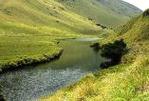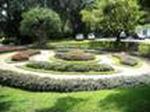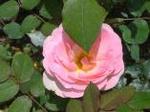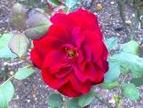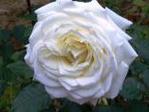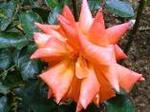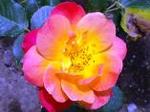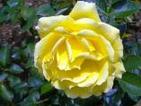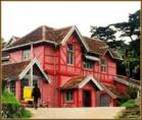About Nuwara Eliya
Nuwara Eliya is Sri Lanka’s highest town and a favourite hill station during British colonial times. The town is still touted as ‘Little England’, an illusion maintained by the presence of the Nuwara Eliya Golf Club, a racecourse, the Victoria Park and excellent trout fishing in nearby lakes and rivers. The temperature can drop close to freezing at night, and log fires are a common feature of the many Tudor-style houses. Adding to the atmosphere is the spectacle of its townsfolk wrapped in winter jackets and woolly hats, carting incredible bundles of turnips, leeks, marrows and cabbages to the markets.
Due to the high altitude, Nuwara Eliya has a much cooler climate than the lowlands of Sri Lanka, with a mean annual temperature of 16 °C. But the temperature changes, and sometimes it can be as low as 3°C. It is pretty cold at night in the winter, and there can even be frost. Although it rapidly warms up as the tropical sun climbs higher during the day.
Due to the high altitude, Nuwara Eliya has a much cooler climate than the lowlands of Sri Lanka, with a mean annual temperature of 16 °C. But the temperature changes, and sometimes it can be as low as 3°C. It is pretty cold at night in the winter, and there can even be frost. Although it rapidly warms up as the tropical sun climbs higher during the day.
|
Among the most iconic vistas of Nuwara Eliya are the rolling estates with their vast swathes of terrain carpeted in an emerald sea. Women draped in colourful saris resemble butterflies as they work their way along the bushes, deftly picking just two leaves and a bud from each branch and tossing them into baskets slung on their backs. The British introduced tea to the island in the late 19th century, which was vital to the economy. Some of the finest in the world is produced in the hill country. Visit a factory and see how they are plucked, dried, crushed, fermented and fired using machinery that has remained unchanged since Victorian times. Nuwara Eliya comes alive in April for the Sinhalese and Tamil New Year, and it is difficult to find accommodation as Sri Lankans holiday in the region during this period. The festive "Nuwara Eliya Season" starts on April 1 annually in a proper manner. The ceremony consists mainly of a band show in which all the local school bands participate. Main attractions in Nuwara Eliya during the April season include the numerous motor and horse racing events. Motor racing comes alive with the Mahagastotte and Radella Hill Climbs, the former being run since 1934. The Nuwara Eliya Road Race and the 4X4 Lake Cross on the edge of Lake Gregory attract a fair share of enthusiasts. Parties are held nightly in the hotels, and the season culminates in the nine-furlong (1811 m) Governor's Cup, Golf Tournaments and the flower show at the end of the month. The town's attractions include the golf course, trout streams, Nuwara Eliya Victoria Park, and boating or fishing on Lake Gregory. Victoria Park is an attractive and well-used oasis. It is popular with birdwatchers at quieter times because of the good opportunities it gives to see various species, particularly the Indian Blue Robin, Pied Thrush or Scaly Thrush lurking in the denser undergrowth. The Kashmir Flycatcher is another attractive bird species found in the park. Galway's Land Bird Sanctuary, close to Lake Gregory, is another wildlife site of 0.6 km². Nuwara Eliya is a base for visits to Horton Plains National Park. This is a key wildlife area of an open grassy woodland. Species include the Leopard, Sambar, and the endemic Purple-faced Langur. Endemic highland birds include the Dull-blue Flycatcher, Sri Lanka White-eye, and Yellow-eared Bulbul. The plains also have a well-visited tourist attraction at World's End, a sheer precipice with a 1050 m drop. The return walk passes the scenic Baker Falls. Early morning visits are best to see the wildlife and view World's End before mists close in during the morning. One of the distinctive features of Nuwara Eliya countryside is the widespread growing of vegetables, fruit and flowers usually associated with temperate Europe. This "Little England" is covered with terraces growing potatoes, carrots, cabbage, cauliflower, leeks and roses, interspersed with tea bushes on the steeper slopes. The slow-growing bushes of this highland region produce some of the world's finest Orange Pekoes, and several factories around Nuwara Eliya offer guided tours and the opportunity to sample or purchase their products. Although not strictly an attraction, the Grand Hotel (Nuwara Eliya) is the former British governor's mansion, now owned by Tangerine Hotels and one of the most prestigious hotels outside Colombo. The charming colonial-era building is over 100 years old. The Hindu Temple called "Seetha Kovil" is a place related to folklore" (Hanuman Kovil). It is found on the way to Badulla from Nuwara Eliya before reaching the Hakgala Botanical Garden. The temple is located in the village called "Seetha Eliya". The area is related to the Ramayana story in Hinduism. Folklore says that the mighty King Ravana kidnapped Princess Seetha, the Queen of Rama, and hid her in the place where the temple is now. |
